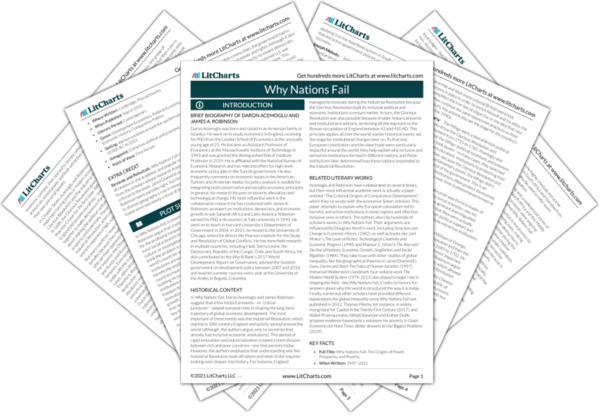AI ToolsNew
Tools to make learning and teaching easier
|
Previous
Extractive Political and Economic Institutions
|
Feudalism Term Analysis |
Next
First, Second, and Third Estates
|
The leaders of the French Revolution and, subsequently, Napoleon exported the revolution to these lands, destroying absolutism, ending feudal land relations, abolishing guilds, and imposing equality before the law—the all-important notion of rule of law, which we will discuss in greater detail in the next chapter. The French Revolution thus prepared not only France but much of the rest of Europe for inclusive institutions and the economic growth that these would spur.

Unlock explanations and citation info for this and every other Why Nations Fail quote.
Plus so much more...
Get LitCharts A+